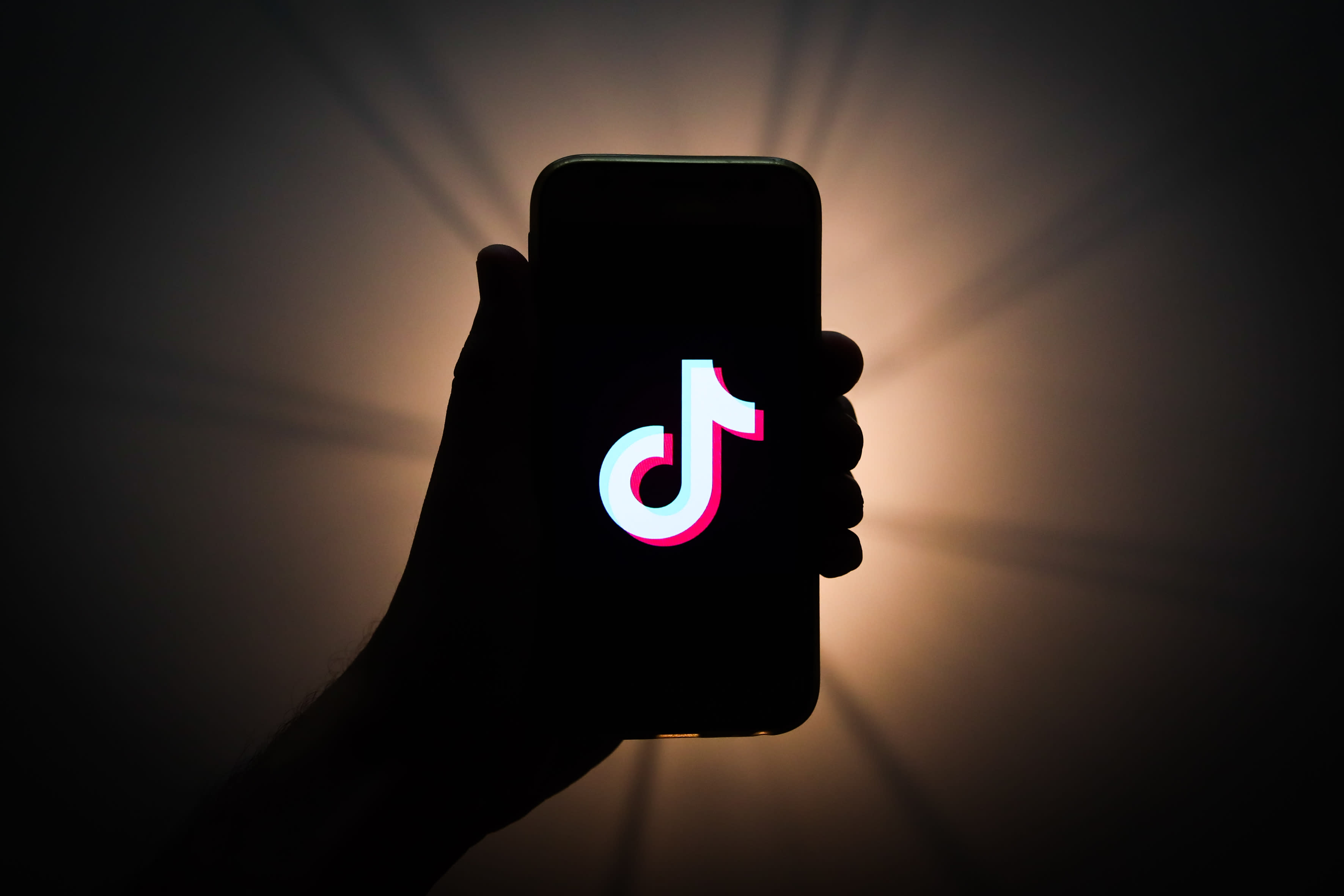
TikTok logo is seen displayed on a phone screen in this illustration photo taken in Krakow, Poland on November 13, 2019. (Photo by Jakub Porzycki/NurPhoto via Getty Images)
NurPhoto | NurPhoto | Getty Images
TikTok is now one of the most popular mobile apps in the world. But success has brought greater scrutiny from the U.S. government for the Chinese-owned app.
So how did it grow and why is Washington taking a keen interest?
The rise of TikTok
TikTok is operated by Chinese technology giant ByteDance. It is the international version of ByteDance's local app Douyin.
In 2017, ByteDance bought a rival app called Musica.ly and eventually merged it with TikTok.
The app allows users to post 15-second videos with music overlaid. People often post videos of them lip syncing to a song or other activities.
It went viral, especially among "Gen Z" or those between the ages of 16 and 25. Paul Barnes, a managing director at App Annie, said TikTok has captured the mind of this age group.
"I think it's just tapped into something that resonates with that particular demographic," Barnes told CNBC's "Beyond The Valley" Podcast.
"The majority of these users ... their first phone was a smartphone. And I think the Chinese publishers probably had better experience of that, maybe even (than) some of the Western publishers, so that probably gave them an advantage in really understanding that mobile-first consumer … particularly that younger demographic."
So how big is it?
TikTok is currently the third most-downloaded non-game app of the year, behind WhatsApp and Messenger, app analytics firm Sensor Tower said. It sits above Facebook and Instagram.
App Annie's Barnes estimates TikTok has around 625 million monthly active users globally. Facebook in comparison has 2.45 billion MAUs. However, Barnes said that while it may not be the biggest social media app out there, it's gaining quickly.
"That growth, that 625 million users, the growth of that is 85% (year-on-year) so it's big, it's not the biggest … but it's growing at an incredible rate," Barnes said.
In comparison, in the third quarter, Facebook's MAU number grew 8% year-on-year.
Why is the US government worried?
There are a couple of different issues. Firstly, U.S. lawmakers are concerned about the app's links to China. TikTok's parent company is Chinese. And lawmakers are worried that TikTok censors content on its platform.
The issue was raised following a high profile case in which a 17-year-old user in New Jersey, Feroza Aziz, was locked out of her account after she posted a viral video criticizing the Chinese government's treatment of the Uighur ethnic minority. The Chinese government has detained Uighurs and other primarily Muslim minorities in camps, which Beijing claims are re-education centers and part of its efforts to counter terrorism and extremism.
TikTok however said that Aziz's account was banned for a different video which violated its policies. It also said that the viral video about the treatment of Uighur Muslims was removed due to a "human moderation error."
The company has repeatedly asserted that it does not censor content. In China, online platforms regularly censor material deemed sensitive by Beijing. U.S. politicians are concerned that TikTok could do the same for content outside of China.
Alex Zhu, the head of TikTok, was scheduled to meet with US politicians, but postponed the meeting.
The second issue for Washington is around user data and whether TikTok is sending that back to China.
Washington has launched a national security review into TikTok's acquisition of Musica.ly.
The inquiry stems in part from the dangers the committee perceives from the Chinese government's access to the app's data and user profiles, a person familiar with the matter told CNBC earlier this month.
At the time, a TikTok spokesperson said the company "cannot comment on ongoing regulatory processes" but that it "has made clear that we have no higher priority than earning the trust of users and regulators in the U.S. Part of that effort includes working with Congress."
"how" - Google News
December 16, 2019 at 02:34PM
https://ift.tt/2PngFP1
How TikTok went from a fun viral app to caught in the crosshairs of the US government - CNBC
"how" - Google News
https://ift.tt/2MfXd3I
Bagikan Berita Ini














0 Response to "How TikTok went from a fun viral app to caught in the crosshairs of the US government - CNBC"
Post a Comment